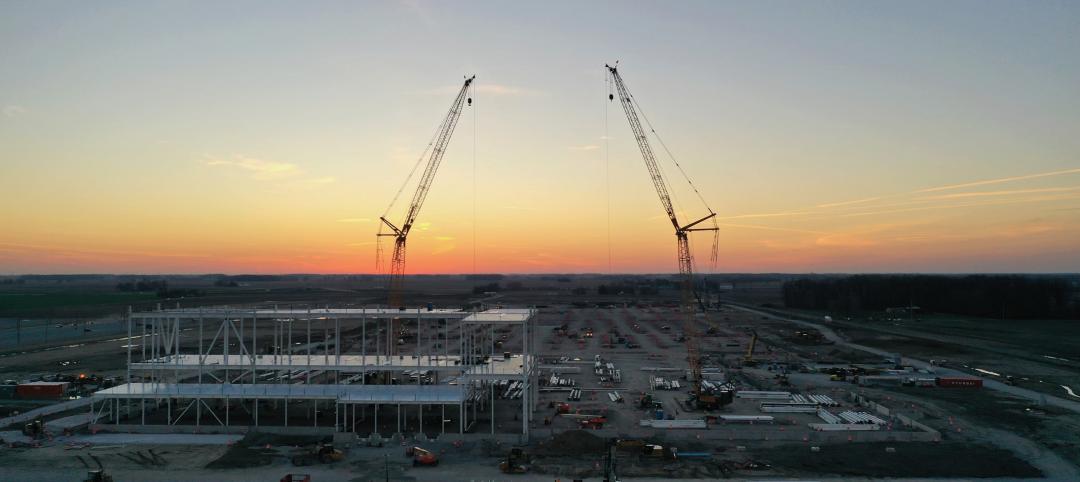Builders, developers, and owners are constantly complaining that high-performance buildings rarely get their due from appraisers who, they say, don’t have good measures to compare one building’s energy savings over another’s, or how those savings affect the value of the building.
The Appraisal Foundation, a nonprofit organization authorized by Congress to establish appraisal standards, is working methodically to alter this perceived image of cluelessness. Within the next few weeks, the Foundation is expected to issue the final draft of its guidance related to background and competency for appraisers valuing green buildings.
John Brenan, the Foundation’s director of appraisal issues, tells BD+C that states may elect to start adopting this guidance by early next year. And while the guidance would be voluntary, Brenan believes it may serve as a safe harbor for appraisers performing appraisals on green buildings.
The final guidance relating to the valuation of green buildings may offer methods and techniques to allow compliance with the Uniform Standards of Professional Appraisal Practice (USPAP).
That Board—which utilizes panels of experts, including those with green-building expertise—is one of three independent boards that comprise the Foundation, the other two being the Appraiser Qualifications Board and the Appraisal Standards Board.
The Foundation is also working on more specific guidance for appraisers to use when valuing the “greenness” of one- to four-unit residential buildings; and commercial, multifamily, and institutional properties.
Brenan says these guidances would contain methods and techniques that show appraisers what to look for and how to compare a building’s green features, materials, and construction management with other buildings in a market.
He expects an initial “exposure draft” of these guidances could be available for public comment in the first quarter of 2015. “Our hope is that all three advisories are adopted by late 2015, so the Foundation would have a tool kit for appraisers and regulators to use.”
At press time, Brenan was unable to elaborate on the proposed methodologies. And he is quick to note that appraisers don’t set values; “they just mirror what’s going on in a market.”
He did note, however, that the guidance being developed includes how to compare properties that have sold with like green features, and how to recognize market-to-market differences.
“One of the most interesting potential [guidances] would be to look at anticipated cost savings over an extended period of time,” he says.
Brenan points out that there is never going to be a “plug-in formula” for green valuation that fits all buildings. “It is still completely market-driven, and markets are stratified. Just because you have green features doesn’t mean the appraisal will be apples to apples. It’s kind of a sliding scale.”
That being said, Brenan readily acknowledges that there aren’t enough appraisers out there who are competent enough to assess how high performance should be factored into a home’s valuation. He’s speaking from experience. “I live in California, in a home that has a solar photovoltaic system, and the appraiser didn’t know what to do with it. So that became a little educational experience.”
Brenan says that anyone in the building, design, and construction sectors who wants to get involving in helping to develop these guidances can contact him directly at John@appraisalfoundation.org.
Related Stories
Higher Education | Aug 7, 2023
Building a better academic workplace
Gensler's David Craig and Melany Park show how agile, efficient workplaces bring university faculty and staff closer together while supporting individual needs.
University Buildings | Aug 7, 2023
Eight-story Vancouver Community College building dedicated to clean energy, electric vehicle education
The Centre for Clean Energy and Automotive Innovation, to be designed by Stantec, will house classrooms, labs, a library and learning center, an Indigenous gathering space, administrative offices, and multiple collaborative learning spaces.
Green | Aug 7, 2023
Rooftop photovoltaic panels credited with propelling solar energy output to record high
Solar provided a record-high 7.3% of U.S. electrical generation in May, “driven in large part by growth in ‘estimated’ small-scale (e.g., rooftop) solar PV whose output increased by 25.6% and accounted for nearly a third (31.9%) of total solar production,” according to a report by the U.S. Energy Information Administration.
Resiliency | Aug 7, 2023
Creative ways cities are seeking to beat urban heat gain
As temperatures in many areas hit record highs this summer, cities around the world are turning to creative solutions to cope with the heat. Here are several creative ways cities are seeking to beat urban heat gain.
Government Buildings | Aug 7, 2023
Nearly $1 billion earmarked for energy efficiency upgrades to federal buildings
The U.S. General Services Administration (GSA) recently announced plans to use $975 million in Inflation Reduction Act funding for energy efficiency and clean energy upgrades to federal buildings across the country. The investment will impact about 40 million sf, or about 20% of GSA’s federal buildings portfolio.
MFPRO+ New Projects | Aug 4, 2023
Nashville gets 'first-of-its-kind' residential tower
Global architecture firm Goettsch Partners announces the completion of Alcove, a new 356-unit residential tower in Nashville, Tenn., developed by Giarratana LLC.
Industrial Facilities | Aug 3, 2023
The state of battery manufacturing in the era of EV
One of the most significant changes seen in today’s battery plant is the full manufacturing process—from raw materials to the fully operational battery.
Government Buildings | Aug 2, 2023
A historic courthouse in Charlotte is updated and expanded by Robert A.M. Stern Architects
Robert A.M. Stern Architects’ design retains the original building’s look and presence.
Hotel Facilities | Aug 2, 2023
Top 5 markets for hotel construction
According to the United States Construction Pipeline Trend Report by Lodging Econometrics (LE) for Q2 2023, the five markets with the largest hotel construction pipelines are Dallas with a record-high 184 projects/21,501 rooms, Atlanta with 141 projects/17,993 rooms, Phoenix with 119 projects/16,107 rooms, Nashville with 116 projects/15,346 rooms, and Los Angeles with 112 projects/17,797 rooms.
Architects | Aug 1, 2023
Ware Malcomb announces hire of Jason Golub as Regional Director
In this role, Golub is responsible for the overall leadership and continued growth of the office.

















